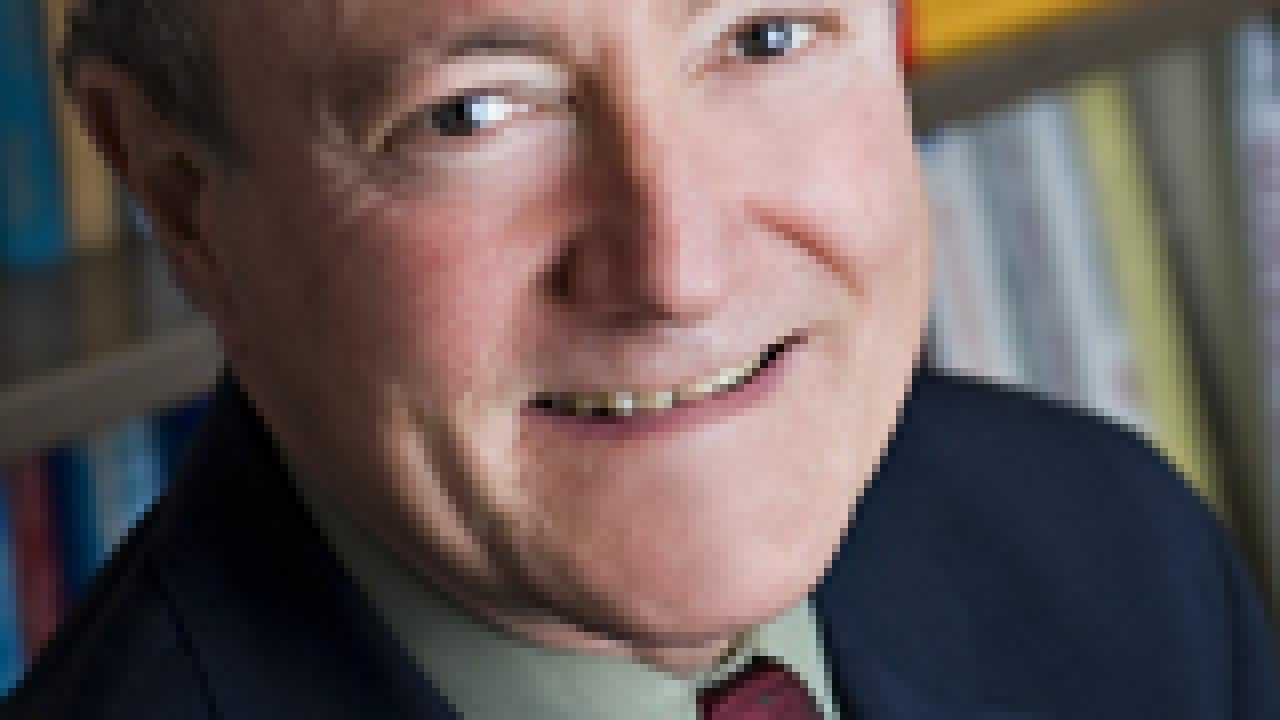Political science professor Larry Berman, an internationally acclaimed scholar of the Vietnam War and American presidency, has been named the 2010 Faculty Research Lecturer by his peers.
Long one of the campus’s most visible political scientists, Berman was nominated and selected for the award by faculty colleagues who cited the volume and quality of his ground-breaking research and the 12 books he has written or co-authored.
“For him, political science and the knowledge we generate is not simple a vehicle for intra-academic debate and discussions,” said political science professor Miroslav Nincic, who nominated Berman for the award. “It is meant to provide a recognizable link to the real world and … to make political science relevant to the real world.”
In short, said Nincic, “He is a scholar who sheds light on questions that most of the world really cares about.”
Highest senate honor
The award issued by the UC Davis Academic Senate recognizes outstanding research and is the highest honor that the Davis faculty bestows upon its members. Recipients also receive $1,000.
Alan Taylor, a history professor and chair of the Academic Senate Faculty Research Lecture Award Committee, said Berman was selected from 12 candidates because of his long, distinguished career at UC Davis and his extensive research on the Vietnam War and American presidency.
“He has produced works of very high quality and he has produced a lot of them,” Taylor said.
In keeping with tradition, Berman will deliver a spring Faculty Research Lecture at 4:30 p.m. May 26 in ARC Ballroom A. The lecture, entitled “The Past Has Another Pattern: Lessons Learned, Lessons Lost from Vietnam to Iraq and Afghanistan,” is free and open to the public.
Born in the Bronx, N.Y., Berman grew up in a politically active family at a politically volatile time. He cut his political teeth in a campaign in which his father, the president of the Bronx County Democratic Club, was elected to a judgeship.
To pursue his deep interest in politics, Berman enrolled at American University in Washington, D.C. The year was 1969. Richard Nixon had just been elected president.
Archives research
“I went to college in Washington from ’69 to ’73, during a period of great political and social unrest,” he recalled. “All of this would have a great influence on me and lead me to graduate studies at Princeton, where I focused on presidential decision-making processes.
“I was never satisfied with the answers I was receiving with respect to how we got involved in Vietnam, what was America’s interest in Vietnam, why would we send 550,000 troops to a country almost half the size of California … yet could not achieve a rather limited political objective.”
This would begin three decades of research in presidential and national archives as well as hundreds of interviews with those who made foreign policy.
With information obtained from previously classified National Security Council documents, he wrote his first book on Vietnam in 1982. Twenty-eight years later, the book — Planning a Tragedy: The Americanization of the War in Vietnam — is still in print and widely used in classrooms.
“Not a lot of people can say that about a book written in 1982,” Berman noted.
His pursuit of classified history ultimately moved Berman to file a lawsuit against the CIA for access to the President’s Daily Briefs during the Johnson administration. His use of the Freedom of Information Act has since helped generations of scholars gain access to previously unavailable materials.
His latest book, Perfect Spy: The Incredible Double Life of Pham Xuan An, Time Magazine Reporter and Vietnamese Communist Agent, as well as a previous book, No Peace, No Honor: Nixon, Kissinger and Betrayal in Vietnam, have been translated into Vietnamese. Perfect Spy is currently the best-selling nonfiction book in that country and also has been optioned for a screenplay.
Established Washington Center
Berman’s research has been featured on Bill Moyers’ PBS series, “The Public Mind,” David McCullough’s “American Experience,” Stanley Karnow’s “Vietnam: A Television History,” C-Span, and the History Channel. He has lectured in Vietnam, Thailand, Britain, Australia, China, Germany, Israel, Italy, France and The Netherlands on American politics, foreign policy and Vietnam.
Berman joined the UC Davis faculty in 1977 and has spent his entire, 33-year academic career at Davis, making him the longest serving member of the Department of Political Science. During that time, he served as department chair and was the founding director of the University of California Washington Center, a satellite facility for students from all 10 UC campuses.
“He has in many ways molded important aspects of the university,” Nincic said, citing the establishment of the UC Washington Center, a task made more difficult by the events of Sept. 11, 2001.
“It’s the most rewarding leadership role I’ve ever undertaken,” said Berman, “because the center was scheduled to open just a week after 9/11. This was the nation’s capital and we didn’t even have our building occupancy permit yet. Half the equipment was still on the interstate highways and we had to delay opening for two or three weeks.
“But, our pioneering class, all but one student showed up. I’m so proud of them for staying the course.”
Among his many honors, Berman has been awarded fellowships from the Guggenheim Foundation and the American Council for Learned Societies. A committed teacher, he received the Outstanding Mentor of Women in Political Science Award from the Women’s Caucus for Political Science.
Media Resources
Clifton B. Parker, Dateline, (530) 752-1932, cparker@ucdavis.edu
